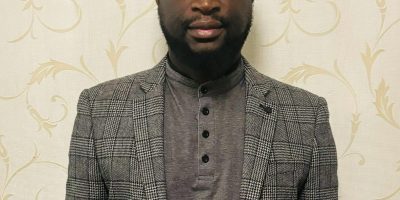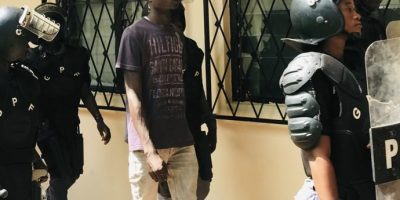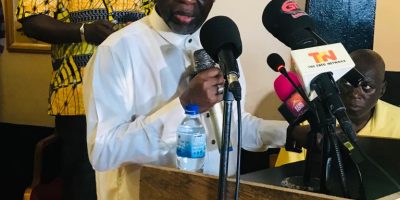ARTICLE 19 has published its annual report 2017/18 on the state of freedom of expression tracks; global trends across key areas of freedom of expression and information, and how they are experienced in various countries.
According to XpA data, The Gambia is thebiggest global advancer on freedom of expression and information, seeing substantial improvement, particularly in the media theme and the indicators relating to the harassment of journalists over the last year. XpA data suggests that The Gambia saw a 67% increase in freedom of expression during 2017.
Media freedoms
The Gambia Press Union began work in collaboration with the government on a comprehensive strategic framework for media reform. Media freedoms are hugely improved, and the grip of self-censorship is loosening as a result: under Jammeh, coverage of sensitive topics could result in arrest or abduction, but more are entering journalism, and exiled journalists are now returning to the country.
New private broadcast outlets launched in 2017, and previously shuttered media organisations reopened, including The Daily News, which had been closed since 2012. The government also substantially improved relations with the media: the director of press and public relations at the State House began to convene press briefings every two weeks.
The President himself committed to holding a bi-annual press conference and one-on-one interviews with the media, the first of which took place in July. The legal framework showed improvement: the Supreme Court declared the Information and Communication Act unconstitutional in its penalisation of online ‘false news,’ as well as a colonial-era law criminalising sedition. The Ministry of Justice conceded that the laws on sedition and criminal defamation were redundant but is attempting to maintain the criminal offence of ‘false news ’ Steps away from impunity, President Barrow’s administration has shown commitment to holding perpetrators accountable for abuses under the former regime.
After 13 years of impunity, former Army Commander Kawsu Camara and Major Sanna Manjang, an alleged assassin for the former President, have been arrested in connection with the murder of prominent Gambian journalist and founder of independent newspaper The Point, Deyda Hydara.
The former director of the feared National Intelligence Agency (NIA) and seven others were convicted for the murder of an opposition politician, Solo Sandeng, who died in jail in 2016. The NIA – responsible for flagrant rights violations – has been renamed the State Intelligence Services, and stripped of the power to arrest and detain.
The new government did, however, face criticism in connection with the arrest and detention of journalist Baboucarr Nani Sey on a variety of trumped-up charges, including organising a demonstration without a permit.
Supporters of the ruling coalition also beat a journalist in March, though authorities later apologised for the attack. The right to protest remains elusive. The government has failed to amend laws which require a permit for public rallies: on 12 November, a peaceful protest against electricity and water shortages, which the government had initially authorised but then prohibited the day before it was planned, was dispersed by riot police.
On 23 November, the Supreme Court ruled that Section 5 of the Public Order Act 1961, requiring police permission for peaceful assembly, did not violate the Constitution.One person died and at least six were injured when Senegalese peacekeepers fired live ammunition to disperse demonstrators near Jammeh’s former residence in Kanilai on 1 June.
The government committed to a full investigation.
Collaboration and consultation
A new approach to civil society Collaboration with civil society became increasingly close and conciliatory in the first year of the new regime: NGOs were invited to participate in committees on transition and reform – even groups critical of the government.
In May, ARTICLE 19 signed a memorandum focused on the rights to freedom of expression and information, public engagement, and transparency, committing to significant input on legal reforms on the media and the upcoming Truth, Reconciliation and Reparations Commission.
NGOs were also consulted on the Gambian Public Utilities Regulatory Authority’s draft guidelines on ownership and cross-ownership in the broadcasting sector. Though there is not yet a freedom of information bill in place, in December, the consultative element of the drafting process began. ARTICLE 19 is the leading organisation in the drafting process and will provide technical expertise in this process.
The new government has undertaken limited initiatives to reduce corruption, which remains a serious problem. A Commission of Inquiry is investigating former President Jammeh’s use of state funds, and froze his assets.
However, Gambians continue to call for an Anti-Corruption Commission and public asset declarations by government officials. There is currently no law to protect whistleblowers.
In the Gambia From the top: leaders condemn attacks on expression In The Gambia, two security agents were arrested in connection with the murder of prominent journalist and founder of the independent newspaper The Point, Deyda Hydara, who was killed in 2004.
The Director General of the National Intelligence Agency, Yankuba Badjie, and seven other officials were charged with the murder of opposition politician, Solo Sandeng, who was killed in custody in April 2016.
Interior Minister and leader of the Gambia Moral Congress (one of the parties of the ruling coalition), Mai Fatty, publicly apologised to journalist Kebba Jeffang, a week after he was attacked. After more than two decades of dictatorship under President Jammeh, the 2016 election produced a surprise victory for opposition candidate Adam Barrow.
After initially accepting the election victory of rival Adam Barrow in December 2016, Yahya Jammeh refused to hand power to the new president, claiming that voter fraud had lost him the election.
A constitutional crisis ensued: tens of thousands of residents fled, as troops from Nigeria and Senegal prepared to invade to remove Jammeh if he did not leave peacefully. Eventually, he left The Gambia, and Barrow was inaugurated on 19 January 2017. The rule of law is not fully consolidated, but huge improvements are already being seen in the enjoyment of the rights to freedom of expression and association.



Ma sha Allah great and thanks for sharing